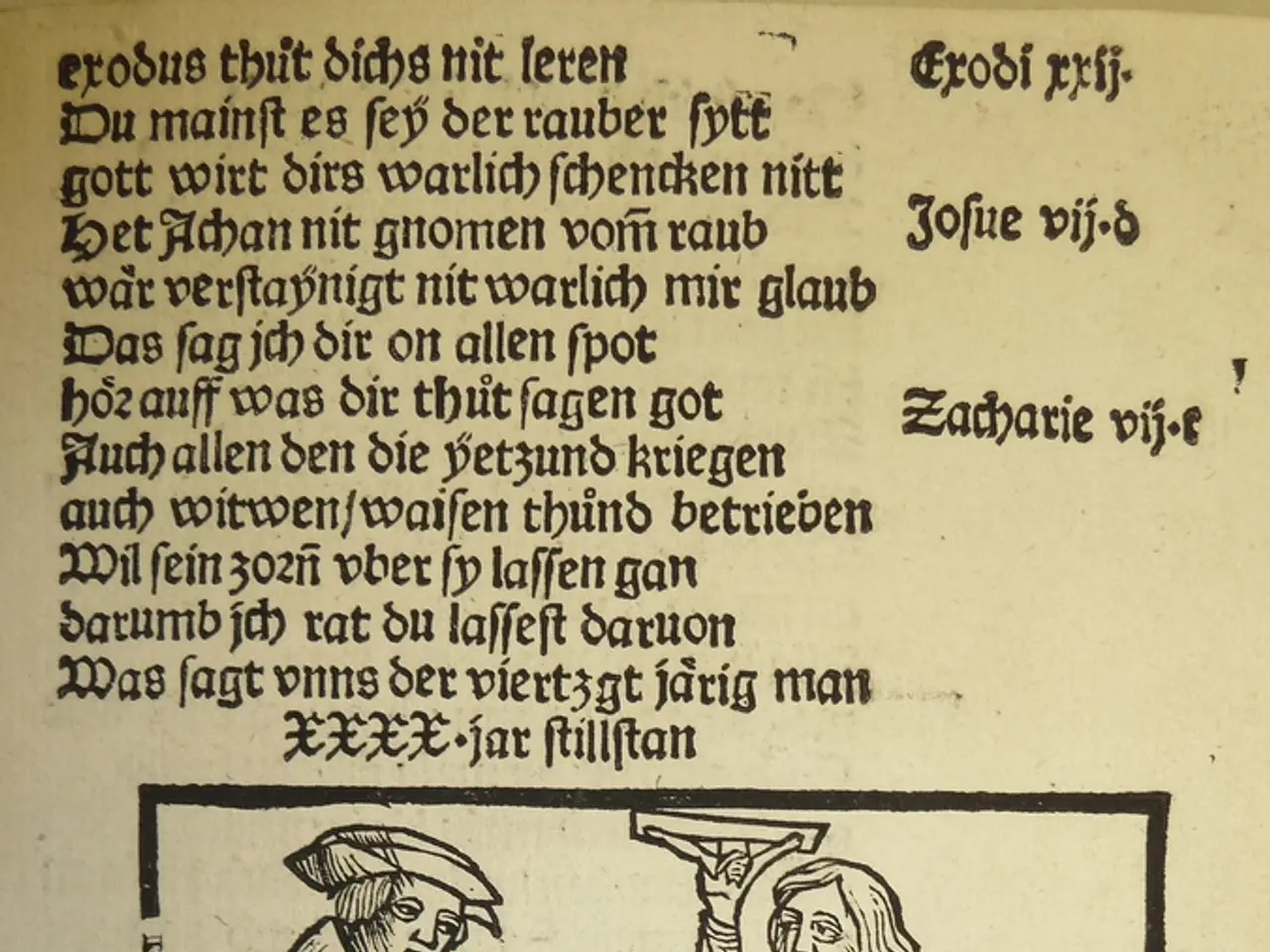Absence of Genders Represented in Federal Government Departments - Federal ministries lack representation from all genders
In a move that has sparked controversy, the Federal Government in Germany has decided to ban the use of gender-inclusive language with special characters such as asterisks or internal capitalization in official communications. This decision was made by Minister of State for Culture, Wolfram Weimer, and applies to the Ministry of Culture and its approximately 470 employees in Berlin and Bonn.
The decision follows the guidelines provided by the Council for German Orthography, which does not include the use of special characters for gender-inclusive language. This council's guidelines take into account accessibility and screen reader software, ensuring that gender-inclusive language is grammatically correct and promotes clarity and legal certainty.
Minister Weimer, an independent, stated that in the Chancellery, gender is not used in letters, emails, and notes. He further argued that the use of forced gendering deepens the division of society. This view is shared by many who believe that gender-inclusive language does not reflect the way the majority in Germany speaks.
The new guideline does not originate from the Federal Government but is relevant to them. It addresses the use of special characters in words used by advocates of gender-sensitive language. The guideline states that word-internal special characters do not belong to the core of German orthography, and the use of such characters can lead to grammatical follow-up problems in various cases, which have not yet been clarified.
The Federal Government does not use words with gender asterisks, and this decision not to use gender asterisks is based on the recommendations of the Council for German Orthography. A spokesperson for the Digital Ministry in Berlin confirmed this decision. However, the overall development regarding special characters is still being observed.
It is important to note that this ban only applies to official communications within the Ministry of Culture. Private or personal use of gender-inclusive language remains unrestricted.
This policy reflects the government's conservative stance on inclusive language in official contexts, emphasizing linguistic uniformity as per the new orthographic guidelines. The new guideline does not address the use of gender in letters, emails, and notes in the Chancellery, as previously stated by Culture State Minister Wolfram Weimer (independent).
References:
[1] Deutsche Welle (2022). Germany's cultural ministry bans gender-inclusive language with special characters. [online] Available at: https://www.dw.com/en/germanys-cultural-ministry-bans-gender-inclusive-language-with-special-characters/a-61176081 [Accessed 20 May 2023].
The Federal Government's decision to ban specialized characters in gender-inclusive language follows their policy and is aligned with the guidelines provided by the Council for German Orthography. This move, however, is limited to official communications within the Ministry of Culture, and the overall context of special characters in language usage remains a subject of ongoing observation.
The controversy surrounding this decision positions the ban within the realm of politics and general news, as it has sparked debates about vocational training in inclusivity and the appropriate use of language in official contexts. The new guideline emphasizes the importance of clarity, legal certainty, and accessibility in word usage, adhering to the recommended linguistic uniformity.





